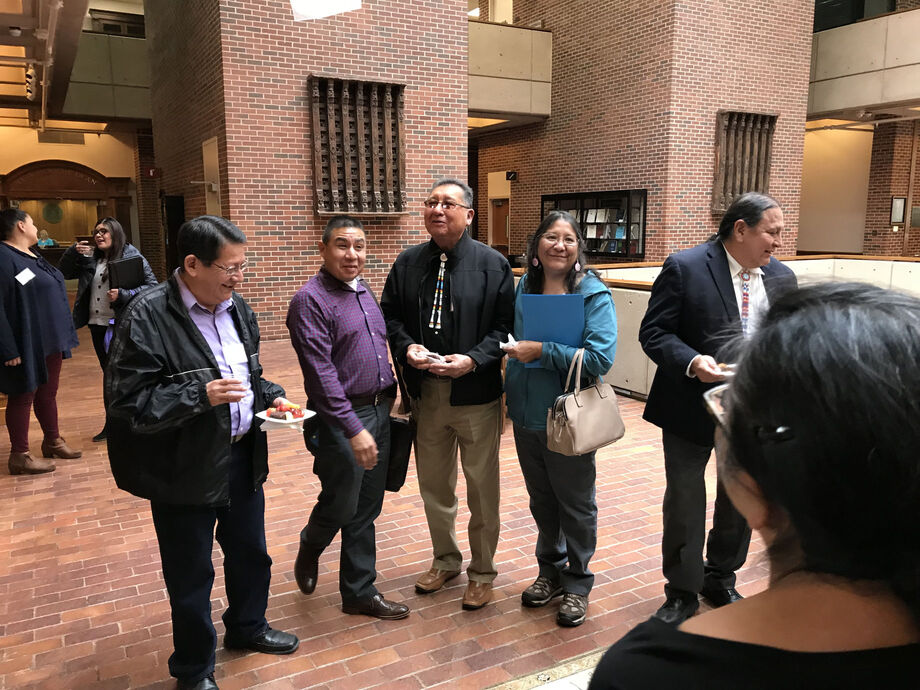NEH funding ensures that OU resources and expertise reach broad audiences. During the COVID-19 pandemic, an ARP grant helped the University of Oklahoma Press create its New Directions in Native American Studies series, publish a podcast bringing faculty voices to the public, and support a virtual Oklahoma Native American Youth Language Fair. A 2021 grant to the Sam Noble Museum of Natural History at OU is helping the university make its significant Native American Language collection available online—a project of vast importance for the Indigenous tribes both within Oklahoma and the broader U.S. who need access to these materials to ensure the continuation of their languages. The project also includes software that is customized for the needs of Indigenous language archives, which will help collaborating tribes develop their own archives and facilitate reciprocal co-curation of Indigenous intellectual property and materials.
At the same time, NEH funding supports efforts to ensure digital projects both make materials more accessible and that they do so with sensitivity toward cultural and religious contexts. A 2016 grant helped university researchers develop protocols for preserving and digitizing sensitive Native American music recordings. In collaboration with Oklahoma tribes and cultural leaders, the project focused on the urgent need to protect these historically private, sacred repertoires crucial for language retention, religious practices, and cultural identity. A 2023 planning grant for an Indigenous media portal continued this important work of making resources such as oral histories, music, films, radio programs, and other materials more broadly accessible, this time in consultation with nearly 40 Oklahoma tribes. Most recently, a 2024 grant established the OU Center for Creativity and Authenticity in AI Cultural Production. This center—one of only five to be awarded such grants in the program’s first year—will explore the relationship between artificial intelligence, the creation of art, and tribal sovereignty.
